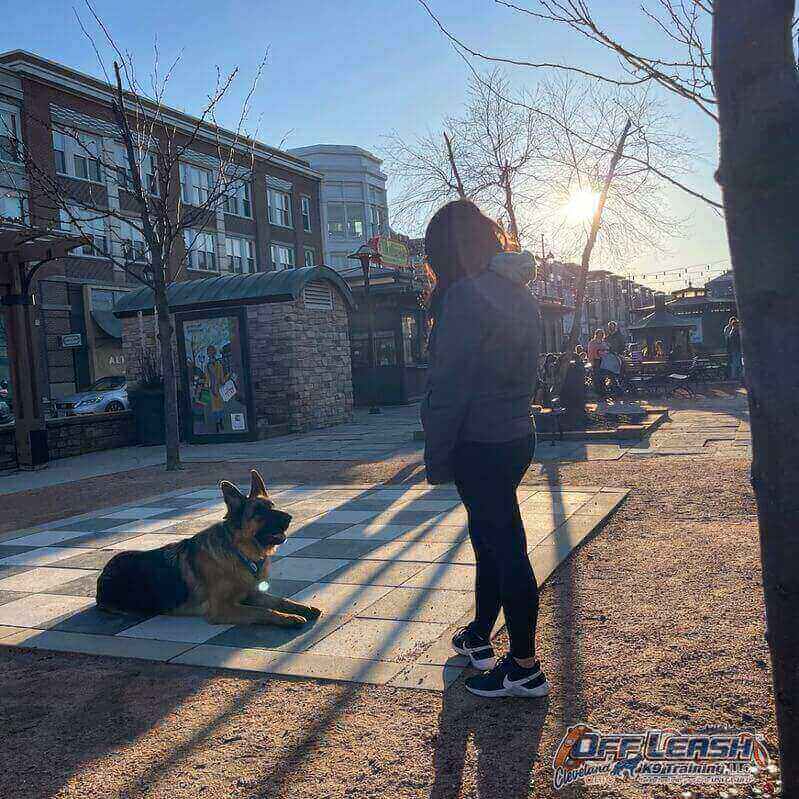How Much Does A Dog Trainer Cost? Breaking Down the Prices in 2024
Thinking about hiring a dog trainer but unsure about the cost? If you want to know how much does a dog trainer cost, you’re not alone. The price of professional dog training can vary widely depending on several factors. From basic obedience to complex behavioral issues, the cost to train your furry friend can add up.
But don’t let the price tag scare you off! Investing in a qualified dog trainer can be one of the best decisions you can make for your pet. Not only does it improve your dog’s behavior, but it also strengthens your bond.
In this post, we’ll break down the factors that influence dog training costs, provide you with average price ranges, and offer tips on finding an affordable yet skilled trainer. By the end of this article, you’ll have a clear understanding of what to expect and how to make the most of your training budget.
Let’s get started!
How much should you expect to pay for dog training services?
Figuring out how much to spend on dog training can feel like a guessing game. The truth is, the cost can vary quite a bit. Several things influence the price tag, including type of training, trainer’s experience, type of training and class, etc.
While cost is definitely important, it shouldn’t be the only factor when choosing a trainer. Investing in a qualified professional who can help you and your dog build a strong bond is worth every penny.
In the next section, we’ll break down the different types of dog training and their associated costs.
Cost breakdown of average dog training sessions
Here’s a general breakdown of different training programs and their estimated costs. Please note that these are just estimates, and actual prices can be higher or lower.
- Basic Obedience Training: This covers essential commands like sit, stay, come, and heel.
Cost: Typically ranges from $30 to $80 per session or $300 to $1,000 for a complete course. - Puppy Training: Focuses on socialization, potty training, and basic commands.
Cost: Similar to basic obedience training around $30 to $80 per session, but might include additional fees for socialization classes. - Behavior Modification: Addresses specific behavioral issues like aggression, separation anxiety, or jumping.
Cost: Can be significantly higher, often starting at $100 per session and going up to $200 or more. - Specialized Training: Includes service dog training, agility training, or therapy dog training.
Cost: These programs are typically the most expensive, since these programs are not done per session, but rather as courses. Costs vary starting from $3000 and can go as high as $30,000, based on the specific training.
These are all just average costs. It’s essential to get quotes from multiple trainers in your area to compare prices and services.
Affordable options for group dog training classes
Don’t worry if you’re on a tight budget. There are ways to get quality dog training without breaking the bank! One great option is group training classes.
Group classes are a cost-effective way to teach your dog basic obedience commands and good behavior. You’ll learn alongside other dog owners, and your dog will benefit from socializing with other pups. These classes are often more affordable than private training sessions.
Look for group classes offered by local pet stores, animal shelters, or community centers. You might be surprised at the variety of options available and the reasonable prices.
What factors determine the cost of dog training?
While the prices indicated above are only estimates, those prices are significantly affected by the following factors:
- Type of training – Basic obedience is usually less expensive than specialized training like behavior modification or service dog training.
- Trainer’s experience – More experienced trainers often charge higher rates.
- Location – Dog training costs can vary depending on where you live.
- Length of training – Shorter programs are generally cheaper than longer ones.
- One-on-one or group classes – Private lessons usually cost more than group classes.
Aside from these, there are other factors that might influence the price:
- Dog’s age, size, and breed – Puppies might require more frequent sessions, and larger or more energetic breeds might need extra attention.
- Severity of behavioral issues – If your dog has serious behavior problems, the training might take longer and cost more.
- Travel fees – If the trainer needs to travel to your home, you might be charged extra.
Understanding these factors can help you make informed decisions when choosing a dog trainer.
Additional costs involved in dog training
While the cost of training sessions is the most obvious expense, there are other costs to consider. These might include:
- Training equipment – You might need to buy items like leashes, collars, treats, or training aids recommended by your trainer.
- Supplies – Depending on the type of training, you might need specific supplies, such as agility equipment or puzzle toys.
- Grooming – Regular grooming is essential for your dog’s health and well-being, especially if you’re attending group classes.
- Veterinary care – Ensure your dog is up-to-date on vaccinations and preventatives, as recommended by your vet.
- Potential boarding or daycare – If your training program includes boarding or daycare, there will be additional costs associated with these services.
By considering these extra expenses, you can get a better idea of the total cost of dog training.
Cost-effective tips for dog training prices
Dog training can be a significant investment, and the costs can quickly add up. But don’t worry! There are ways to get quality training without breaking the bank. Here are some tips:
- Group classes – These are often more affordable than private lessons. You’ll learn alongside other dog owners while your pup socializes.
- DIY training – There are many free resources available online and in books. You can learn basic obedience commands and good behavior on your own.
- Inquire about packages – Dog training packages are pre-arranged sets of training sessions that often come with discounted rates compared to paying for individual sessions.
- Ask about payment plans – Some trainers offer payment plans to make training more accessible.
While it’s extremely tempting to go for the cheapest option, investing in a qualified trainer can save you money in the long run by preventing behavioral problems.
What should dog owners look for in a professional dog trainer?
Hiring a dog trainer is an investment in your pet’s behavior and your peace of mind. Therefore, it’s important to set clear criteria for the trainer you choose. While experience and expertise are crucial, there are other qualities to consider.
A good dog trainer should be:
- Positive reinforcement focused – Trainers who use positive methods create a happier and healthier learning environment for your dog.
- Patient and understanding – Training can be challenging, and a good trainer will work with you and your dog at your own pace.
- Good communicator – A clear and open communication style is essential for understanding your dog’s needs and providing guidance.
- Ethical – Ensure the trainer prioritizes the well-being of your dog and avoids harsh or aversive methods.
- Professional – A qualified trainer will have certifications or memberships in relevant professional organizations.
- Willing to work with you – A good trainer will involve you in the training process and provide guidance on how to continue training at home.
Building a strong relationship with your dog trainer is key to achieving your training goals.
Benefits of personalized training sessions
Personalized training sessions offer several advantages for both you and your furry friend.
- Tailored approach – Your dog’s unique personality, breed, and learning style are considered, ensuring the training program fits their needs.
- Faster progress – Addressing specific issues and goals allows for focused training, leading to quicker results.
- Flexible scheduling – You can choose a time that works best for your schedule, making it easier to commit to training.
- Immediate feedback – Direct interaction with the trainer allows for instant feedback and adjustments to the training plan.
- Home environment training – Many trainers offer in-home sessions, addressing real-life distractions and challenges.
With personalized training, you’ll be able to overcome specific challenges and create a well-behaved, happy companion.
Finding a dog trainer near you
Finding a reliable dog trainer near you can make a big difference in your dog’s behavior and your overall training experience. Here’s how to find a trainer you can trust:
- Ask for recommendations – Start by asking friends, family, and your vet for recommendations. Personal experiences can give you valuable insights into the quality of a trainer.
- Research online – Look for dog trainers in your area online. Read reviews and check their websites to learn more about their services and expertise.
- Check credentials – Ensure the trainer has proper certifications and training. A certified trainer is more likely to use effective and humane methods.
- Visit training sessions – If possible, observe a training session. This will help you see how the trainer interacts with dogs and if their methods align with your expectations.
- Ask questions – Don’t hesitate to ask potential trainers about their experience, training techniques, and success stories. A good trainer will be happy to answer your questions.
Dog training is an investment in your beloved pet’s future. It’s not just about teaching your dog commands; it’s about building a stronger bond, enhancing their quality of life, and creating a harmonious household.
By investing in professional training, you’re setting the stage for a happier, healthier, and more fulfilling life for both you and your furry friend.
If you’re considering dog training and need guidance, reach out to us! We’re here to help you every step of the way on your dog training journey. From answering all your questions about dog training to assessing your beloved pet’s unique personality and needs to developing a personalized training plan, we’ll ensure your furry pet gets the best care and training possible. Contact us today, and let’s start working together to achieve your dog training goals!

